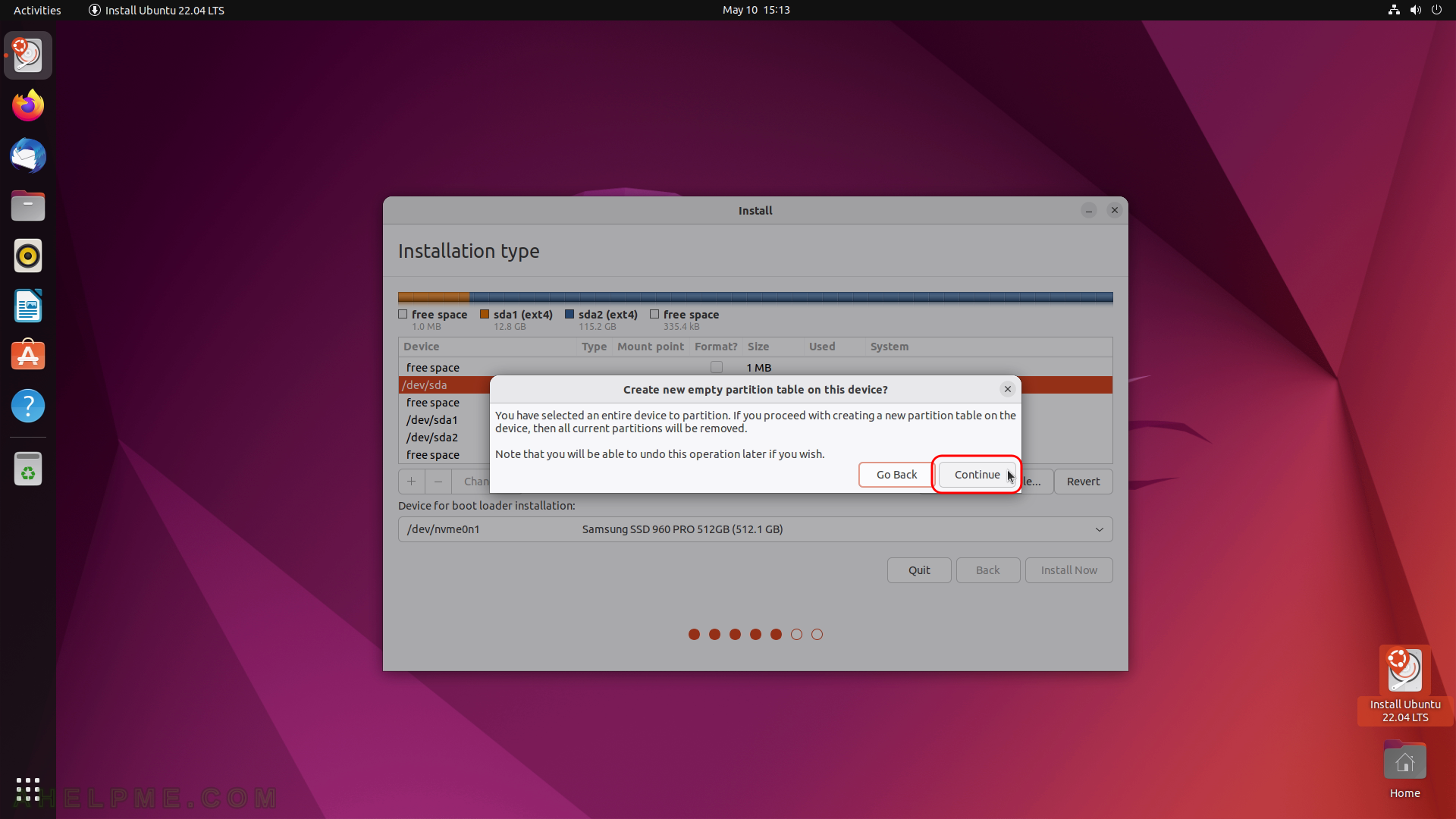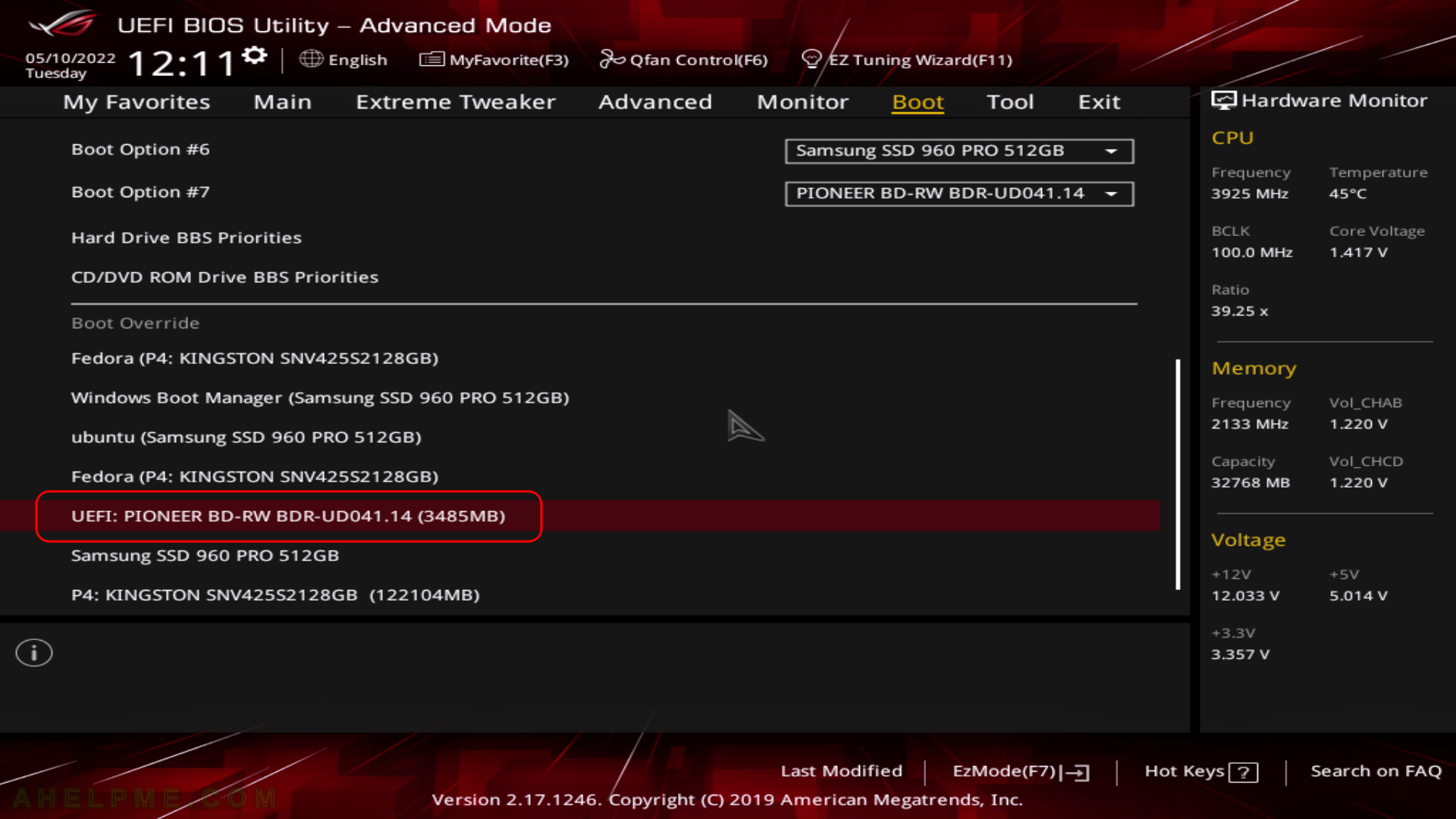This tutorial will show the simple steps of installing the latest version of Ubuntu – Ubuntu Desktop 22.04 LTS. Here we present the more advanced setup installation when you have already had installed operating systems, so this installation will add Ubuntu 22.04 LTS to one existing operating system – Microsoft Windows 10 Professional. So there we have 2 hard disks in the system – one is NVME, the other one is an SSD. The installation uses the first disk – “sda” in this case. The SSD has two partitions, which are going to be removed, and a new disk layout will be used for the Ubuntu installation with three partitions – efi, swap and root parititions.
Ubuntu Desktop 22.04 LTS comes with the following software:
- Xorg X server – 1.22.1.1
- GNOME (the GUI) – 42.0
- linux kernel – 5.15.0
- linux-firmware – 20220329.git681281e4
- QT – 5.13.3 and 6.2.4
- libc – 2.35
- gnu gcc – 9.4.0, 10.3.0, 11.2.0 and 12-20220302
- coreutils – 8.32
- python2.7 (possible to install) – 2.7.18
- python3 (default) – 3.10.4
- perl – 5.34.0
- apt – 2.4.5
- cups – 2.4.1
We used the following ISO for the installation process – Ubuntu 22.04 LTS (Jammy Jellyfish):
https://releases.ubuntu.com/22.04/ubuntu-22.04-desktop-amd64.iso
It is a LIVE image so you can try it before installing it. The easiest way is just to download the image and burn it to a DVD disk and then follow the installation below:
SCREENSHOT 1) Boot from the DVD or USB flash drive to install the Ubuntu 22.04 LTS.
SCREENSHOT 2) Select to “Try or Install Ubuntu” and hit enter.
To install Ubuntu from your DVD or USB you must boot from it, so change your BIOS accordingly – first boot devide should be the DVD or USB drive with Ubunto installation. If you do it successfully you would see the screenshot below.
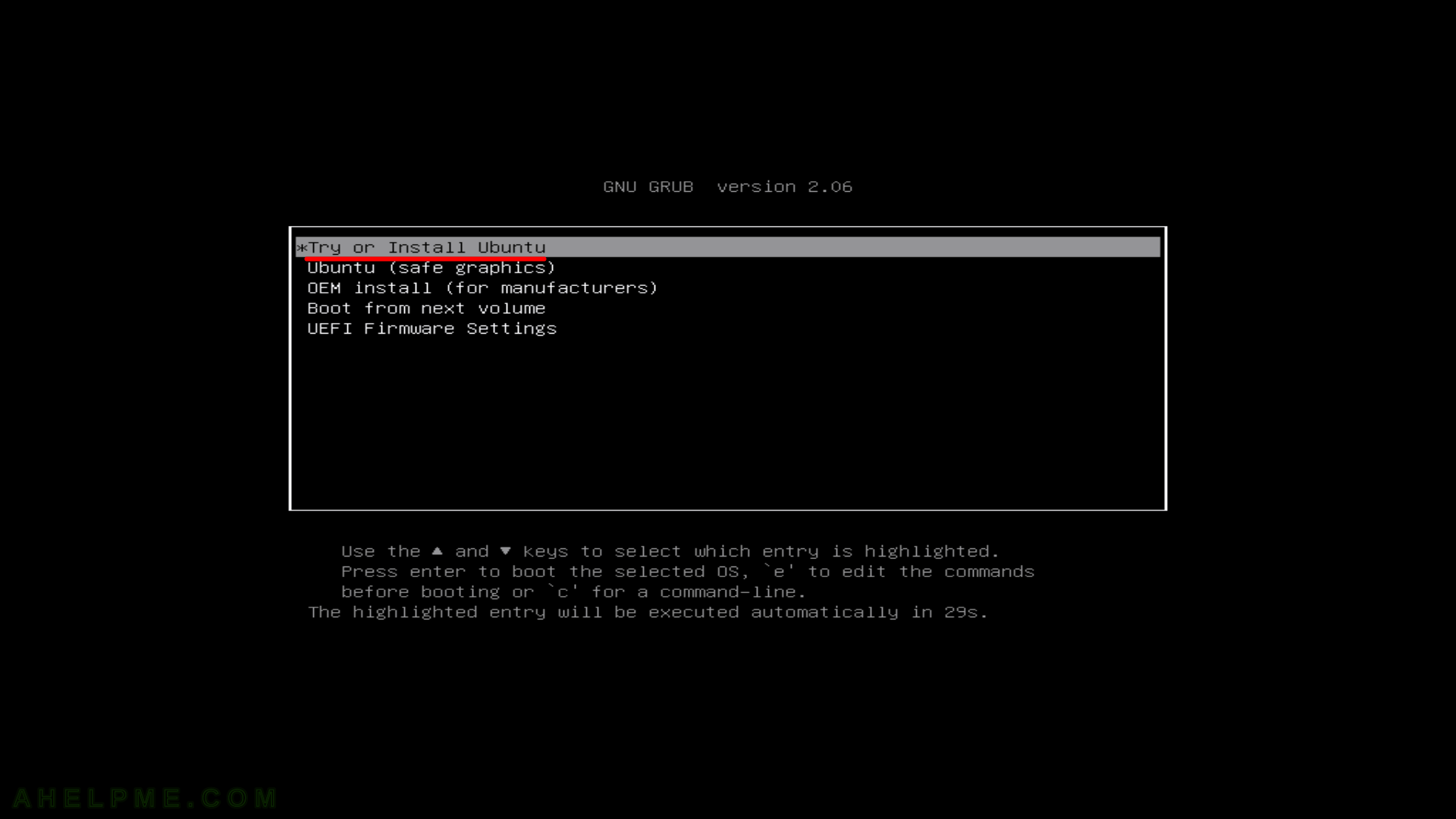
SCREENSHOT 3) Ubuntu installation is staring…
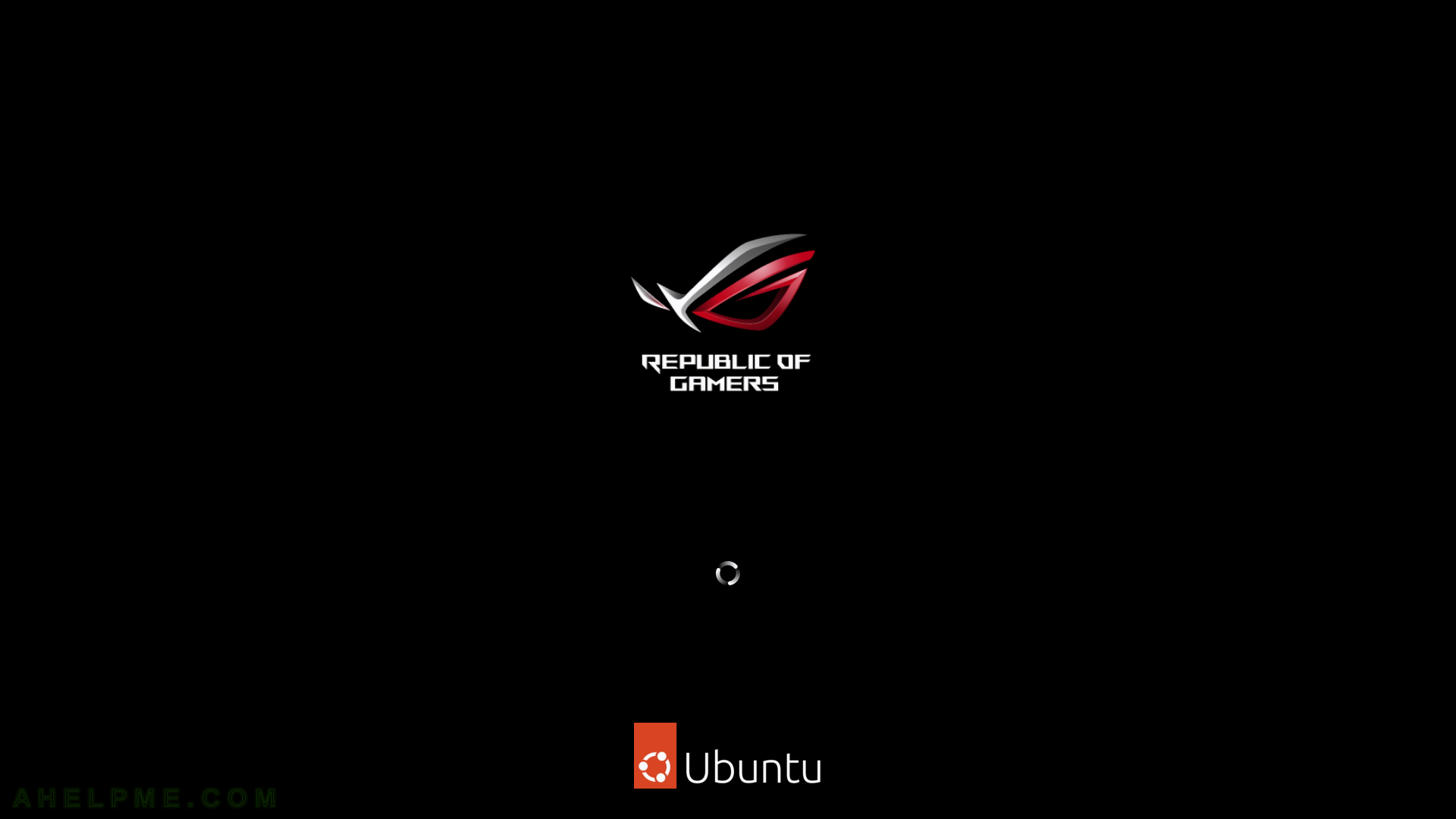
SCREENSHOT 4) To install the Ubuntu 22.04 LTS just click on the “Install Ubuntu 22.04 LTS” icon on the right corner of the live Ubuntu desktop.
The installation wizard may be started automatically and in this case, no need to start the installation wizard manually.
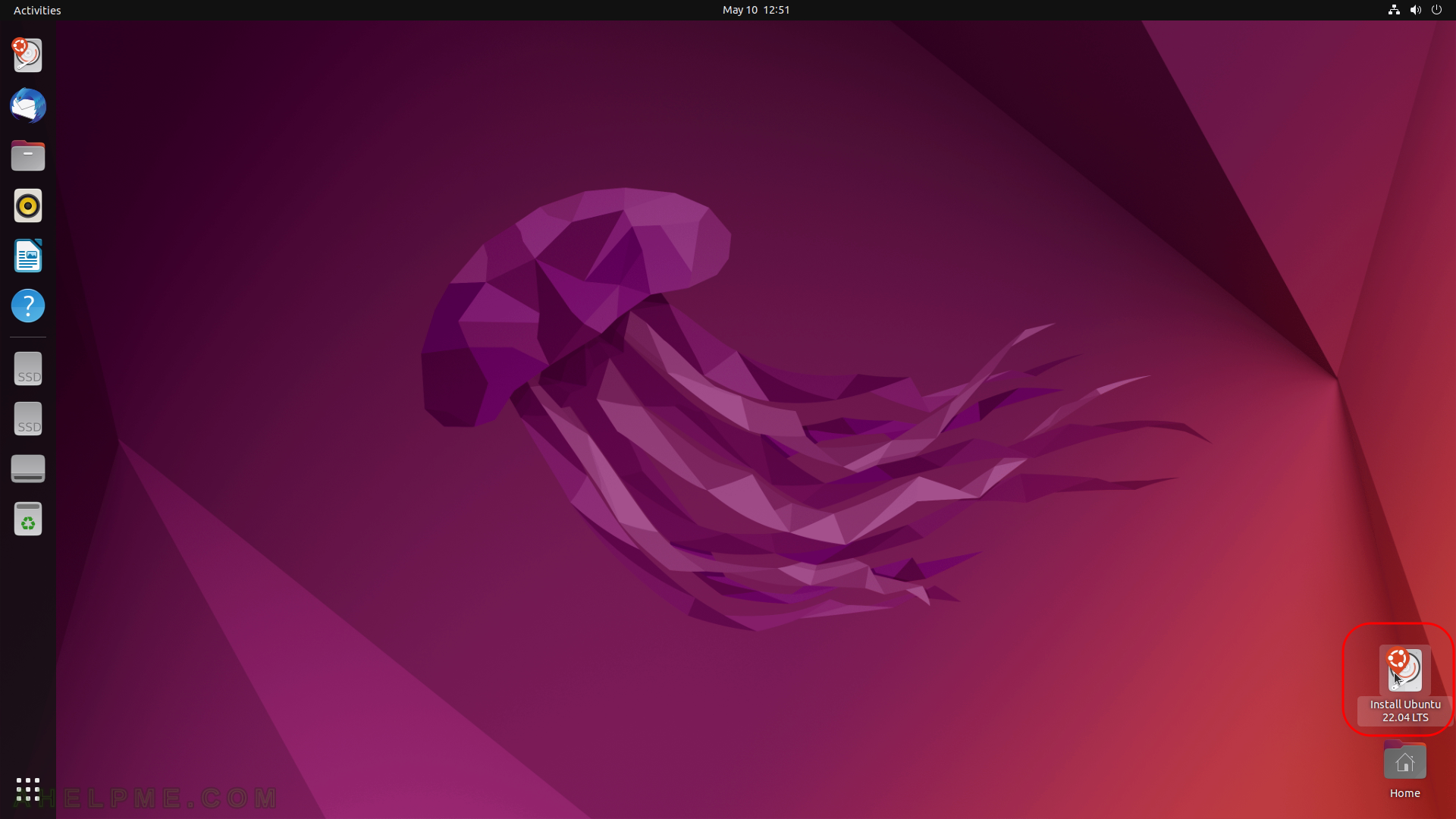
SCREENSHOT 5) Choose your language for the installation and your system.
By default, English is selected. Click on “Continue”.
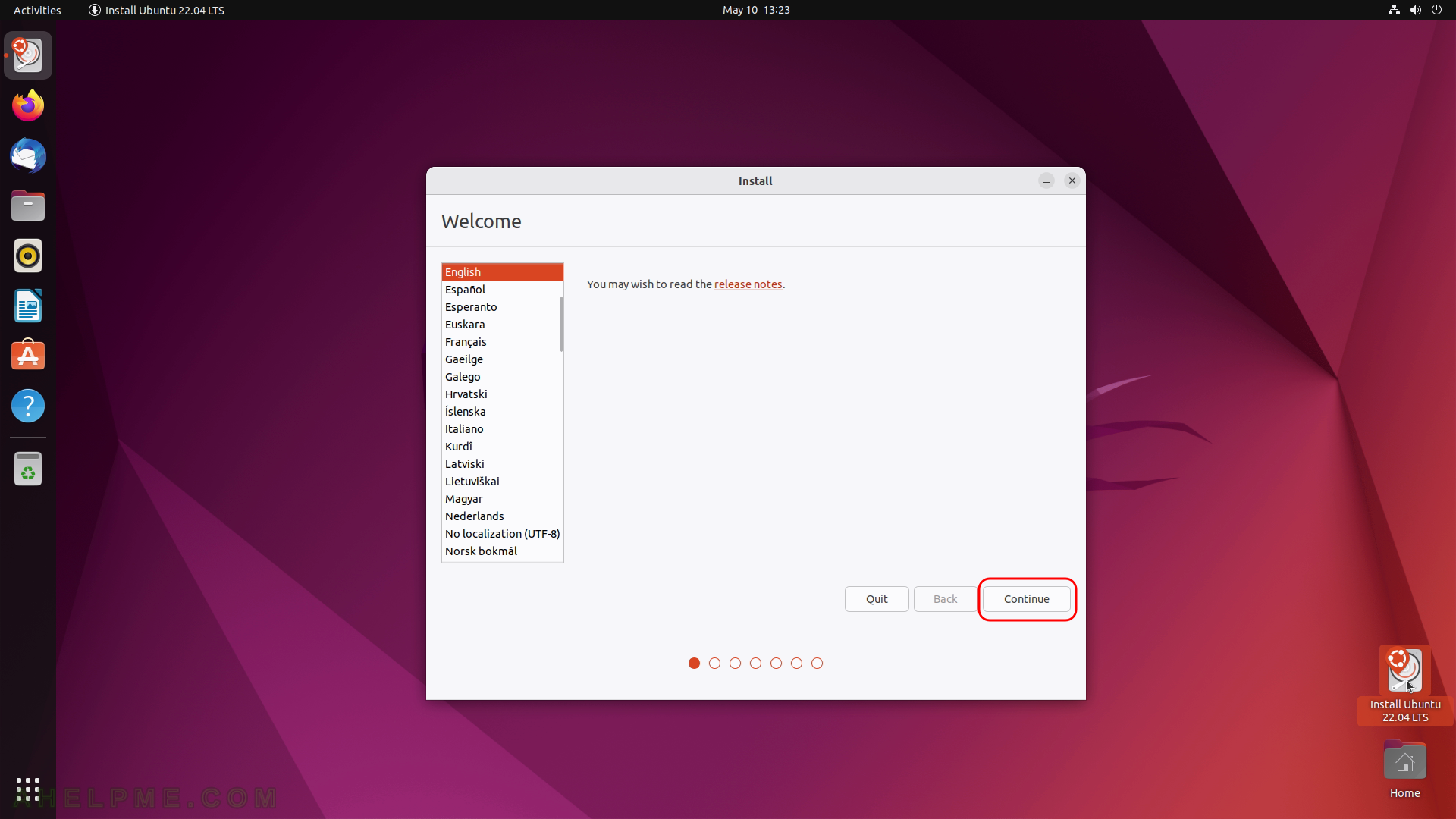
SCREENSHOT 6) Choose your proper localized keyboard layout.
Probably the default is ok, the setup tries to autodetect it. Click on “Continue”.
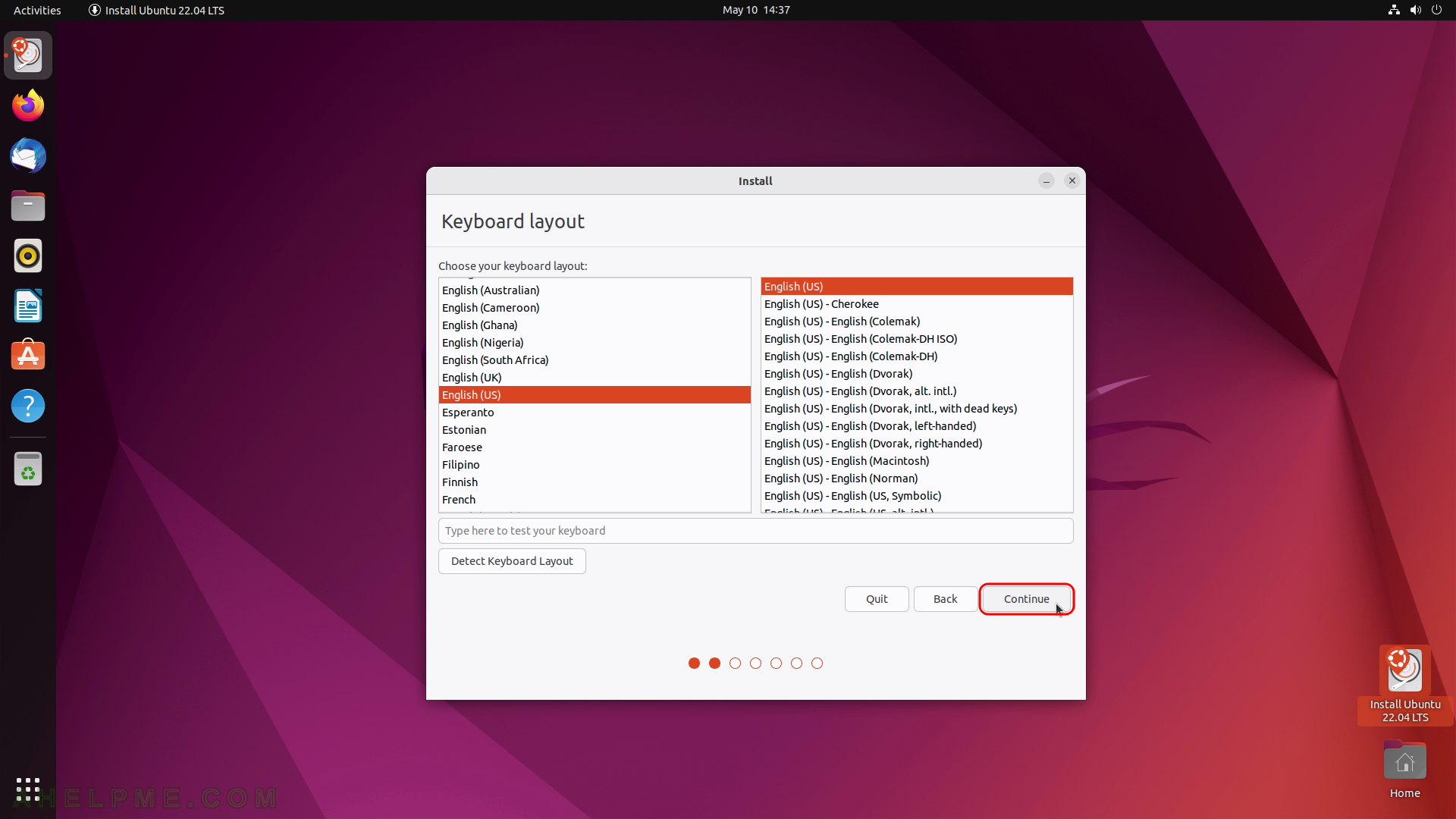
SCREENSHOT 7) Three options to select – Normal Installation, Download updates while installing Ubuntu and Install third-party software for graphics and Wi-Fi hardware and additional media formats.
The last options is almost mandatory if you use the machine as a Desktop computer. The third-party software will install some proprietary software and you’ll have a better experience with the system.
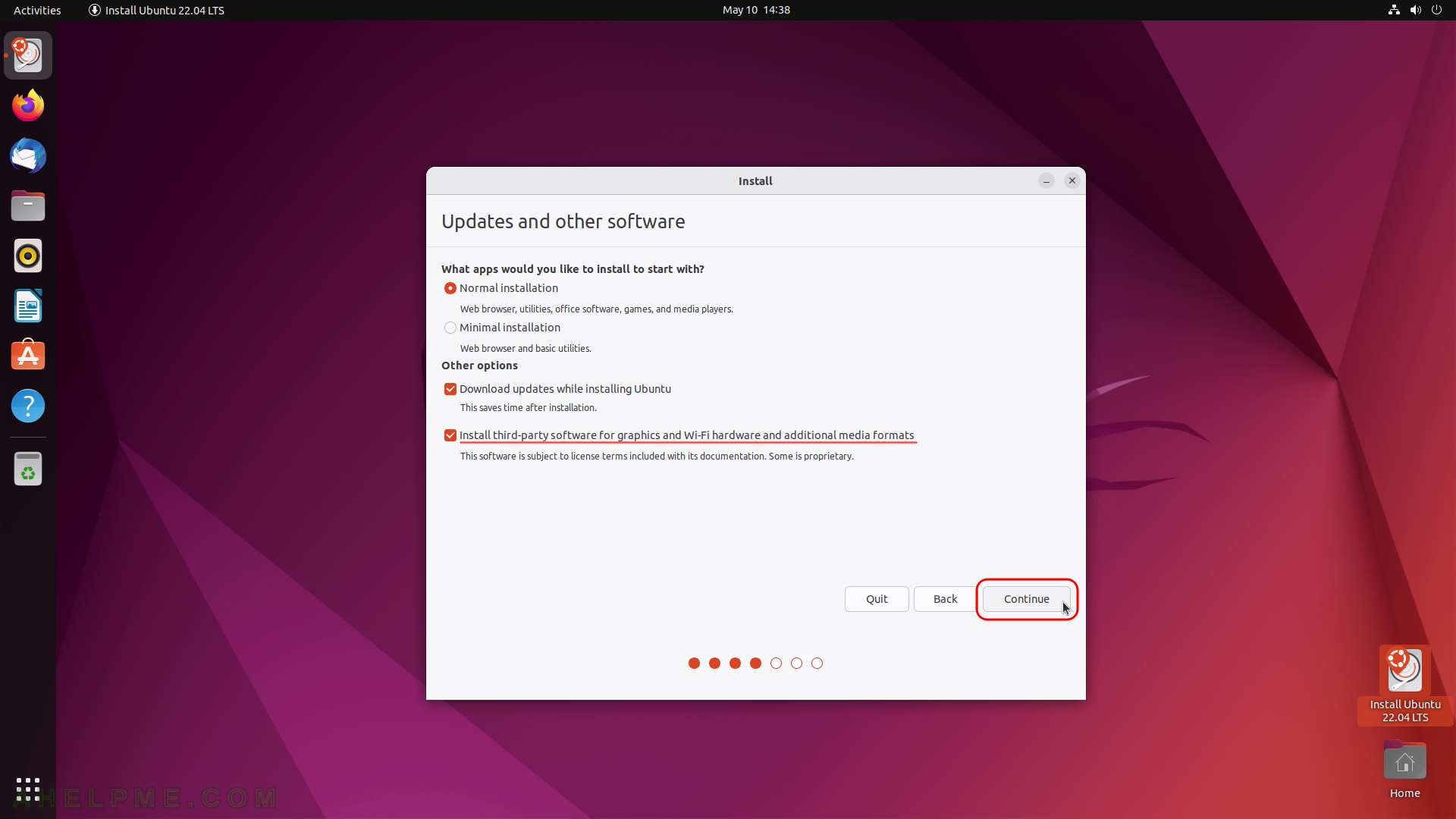
SCREENSHOT 8) As mentioned before this article is showing the dual boot option with Windows alongside, so the disk layout should be configured manually with “Something else”
This option could customize the hard disk layout and choose on which hardware device to install Ubuntu. Just for the record, the first option here will install Ubuntu on the same device as Windows 10 and will replace the boot loader of Windows 10 preserving the Windows partition and Windows 10 in a working state, so if this is what you want select the first one – the hard disk layout is as follow – 1 hard disk with Windows 10 partition(s) and free space (enough for Linux distro installation, let’s say more than 10G). The second option here is to erase everything and make a clean install Ubuntu on a newly created hard disk layout – be careful if you do this YOU WILL LOSE ALL DATA in your hard drive. Click on “Continue”.
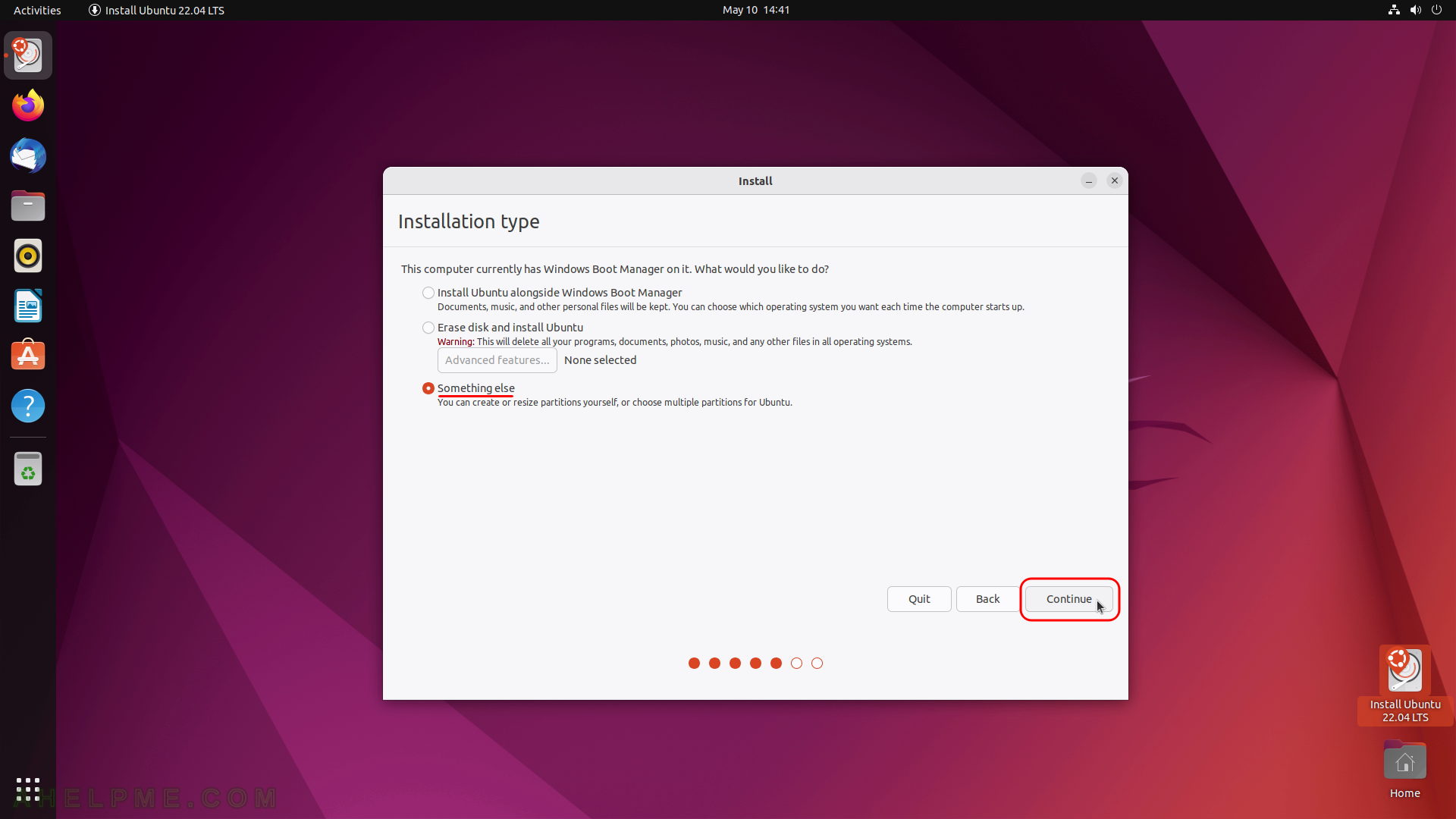
SCREENSHOT 9) The installation wizard partitioner is started, the sda disk is selected and click on “New Partition Table”
As it is shown, there are two existing parittions on the device sda. In this istallation, all paritition should be removed (all data from the device sda will be removed!!!) and a new disk layout will be created. The easiest way to remove everything on the sda disk is just to create a new (empty) partition table! With the next steps it will be add the partitions for the Ubuntu 22.04 LTS installation. This steps only removes all unnecessary partitions on the installation destination partition, in this case, the sda device.
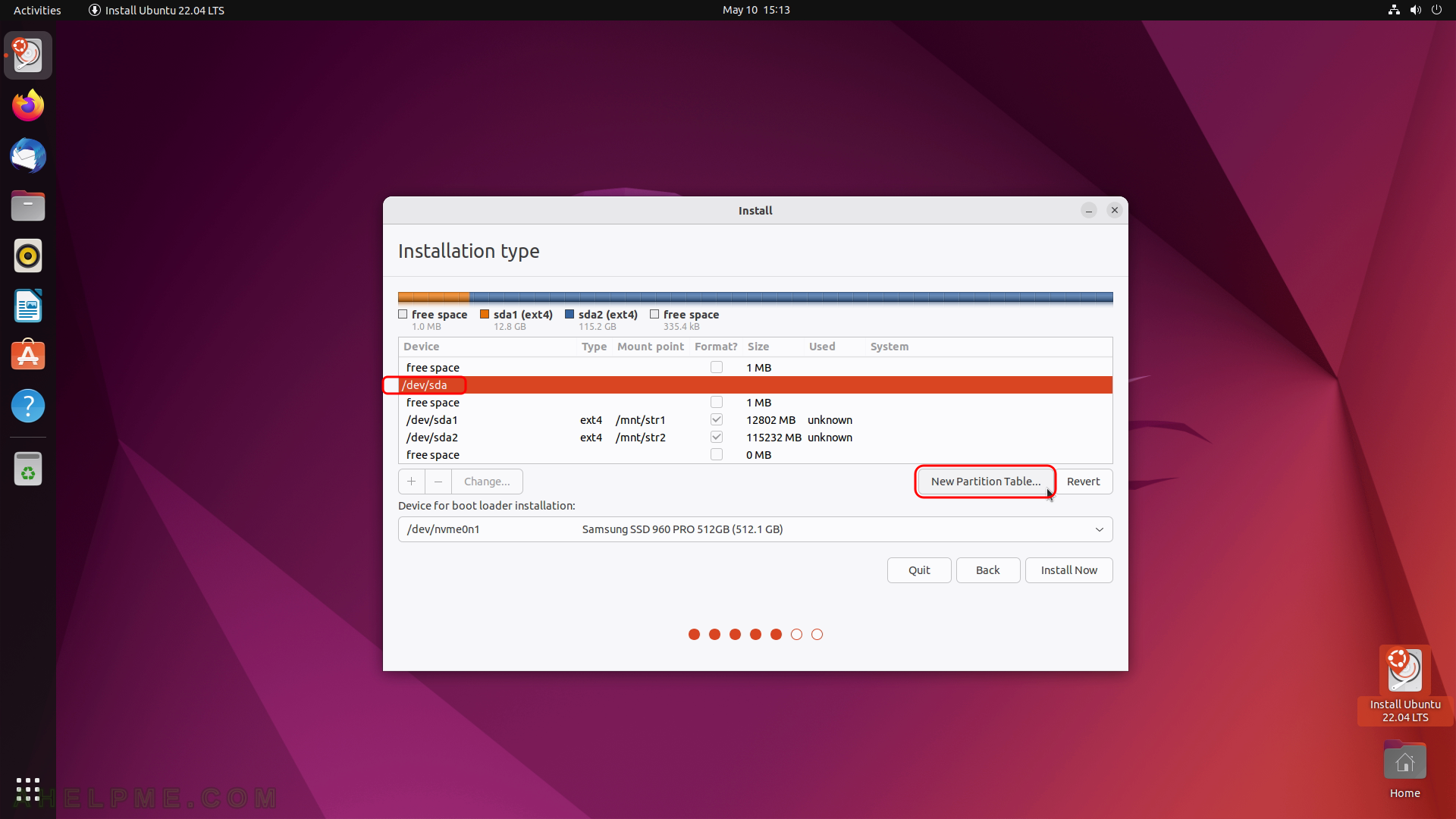
SCREENSHOT 10) A confirmation is need to create a new empty partition.
This operation will remove ALL the data in the sda device. Be careful! Click on “Continue” if you are sure this is the right device to install Ubuntu 22.04 LTS.
